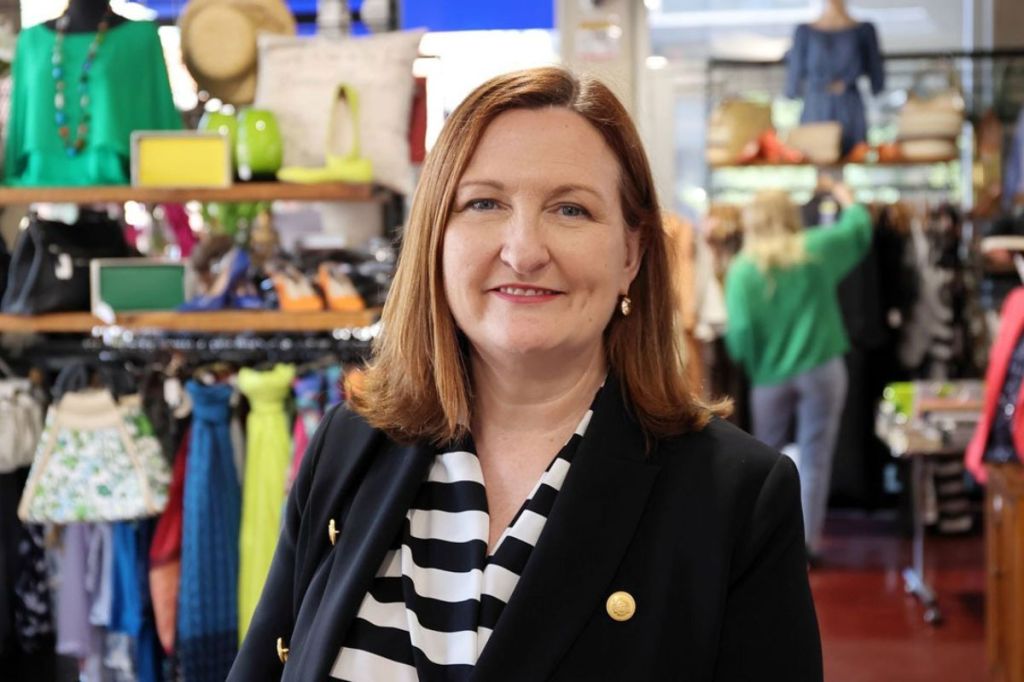Florence Pugh and her problems with fertility explained

Oppenheimer actor Florence Pugh, at the age of 27, has decided to freeze her eggs as doctors warn of future fertility issues.
This came after Pugh received a surprise and “bizarre” diagnosis with two conditions that are leading causes of infertility.
Pugh had met Dr Thaïs Aliabadi, known also as “Dr A”, who describes herself as the official gynaecological surgeon to celebrities and royal families.
Aliabadi also runs a podcast, SHE MD.
Pugh, in a People magazine interview, revealed that Aliabadi had “asked if I’d ever had an egg count done and I was like, ‘No, what do you mean? I’m so young. Why do I need an egg count?'”
Nevertheless, Pugh agreed. The egg count led Aliabadi to diagnose Pugh with polycystic ovary syndrome (PCOS) and endometriosis.
These are chronic conditions that can’t be cured.
Both come with unpleasant and, in the case of endometriosis, painfully crippling symptoms.
Pugh later discussed the diagnosis on Aliabadi’s podcast.
You might like
“It was just so bizarre because my family are baby-making machines. My mum had babies into her forties. My gran had babies throughout.”
And then, she said, “I learned completely different information, at age 27, that I need to get my eggs out, and do it quickly.”
This, she was “a bit of a mind-boggling realisation”.
Pugh said she was “really lucky and glad that I found out when I did because I’ve been wanting kids since I was a child”.
What is polycystic ovary syndrome?
PCOS is a complex hormonal condition that usually starts during adolescence.
It’s thought that increased levels of insulin cause the ovaries to work differently, which leads to high levels of androgens (male-type hormones).
Because symptoms may fluctuate – and because the most obvious symptoms seem more embarrassing than serious – it can go undiagnosed.
According to the World Heath Organisation, PCOS affects an estimated 8 to 13 per cent of reproductive-aged women.
Up to 70 per cent of affected women remain undiagnosed worldwide.
PCOS can cause “hormonal imbalances, irregular periods, excess androgen levels and cysts in the ovaries”.
Stay informed, daily
The irregular periods, along with a lack of ovulation, can make it difficult to become pregnant.
PCOS is associated with irregular menstrual cycles, excess facial and body hair, acne, heavier weight, reduced fertility, and increased risk of type 2 diabetes.
The cause of PCOS is unknown but women with a family history or type 2 diabetes are at higher risk.
Symptoms, according to Better Health, can differ from person to person. Symptoms “may change over time and often occur without a clear trigger”.
Possible symptoms include:
- Heavy, long, intermittent, unpredictable or absent periods
- Acne or oily skin
- Excessive hair on the face or body
- Male-pattern baldness or hair thinning
- Stress, anxiety and depression
- Weight gain, especially around the belly.
If hormone levels are controlled, the ovaries can function normally and symptoms may improve.
Endometriosis
Endometriosis is a disease in which tissue similar to the lining of the uterus grows outside the uterus. It can cause severe pain in the pelvis and make it harder to get pregnant.
Endometriosis can start at a person’s first menstrual period and last until menopause.
It is a complex, challenging and frequently debilitating condition that affects 11 per cent of Australian women, girls and people assigned as female at birth.
There is no cure; it can only be diagnosed via laparoscopic surgery; about 30 to 50 per cent of sufferers are infertile; and the pain, cramping, bloating, fatigue and nausea plays hard with quality of life. Especially the pain.
Last year, the Australian Institute of Health and Welfare reported “that the rate of hospitalisations for the condition has doubled among women aged 20 to 24 over the past decade”.
“‘Endometriosis is a progressive chronic condition where tissue similar to the lining of the uterus grows in other parts of the body,” AIHW spokesperson Katherine Faulks said.
“Endometriosis causes inflammation and scarring, which can lead to painful adhesions joining together pelvic organs that are normally separate.
“Women may experience pain, heavy menstrual bleeding, bleeding between periods, abdominal bloating, fatigue, anxiety, depression and reduced fertility, among other symptoms.”
According to a new study, women with a history of endometriosis and uterine fibroids might have an increased long-term risk of premature death.
The researchers found that endometriosis was associated with a 31 per cent higher risk of premature death – largely driven by deaths from gynaecological cancers.









